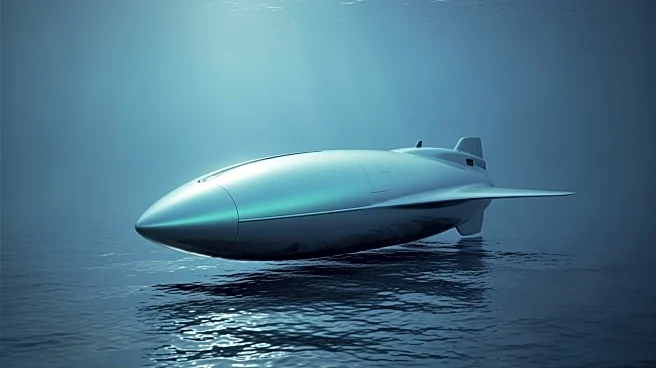What's Happening?
Several European NATO members are evaluating the acquisition of high-endurance underwater drones, known as GreyShark, developed by German companies EUROATLAS and EvoLogics. These autonomous underwater vehicles are designed for reconnaissance, intelligence-gathering,
mine detection, and anti-submarine warfare. The drones are undergoing trials in the Baltic Sea, with interest from multiple nations in the region. The initiative is part of a broader effort by NATO to enhance maritime security, particularly in response to suspected sabotage incidents involving undersea cables. The drones can operate independently for extended periods, providing critical infrastructure protection and countering potential threats from Russian submarines.
Why It's Important?
The deployment of underwater drones represents a significant advancement in NATO's maritime security capabilities, addressing vulnerabilities in critical infrastructure such as pipelines and cables. As tensions with Russia persist, these drones offer a strategic advantage in monitoring and protecting vital assets in the Baltic Sea. The investment in such technology reflects a shift towards self-reliance in defense capabilities among European NATO members, reducing dependence on U.S. military support. This development is crucial for maintaining regional stability and deterring potential aggression.















